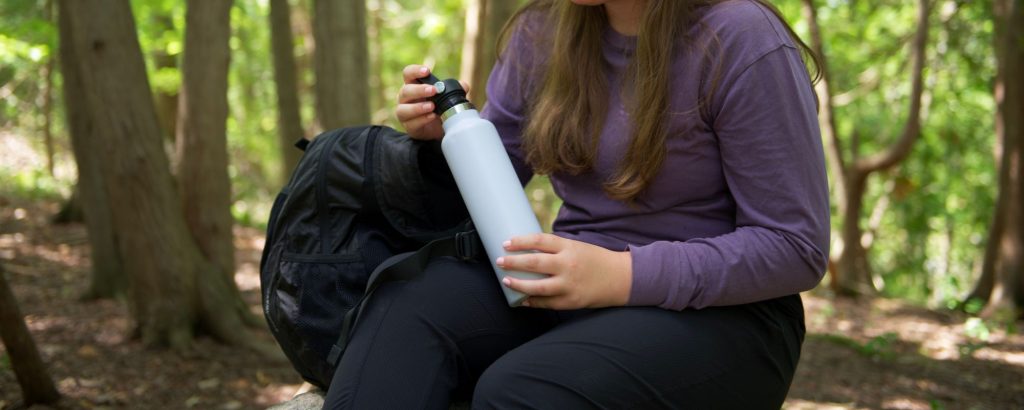
Today’s post comes from Senior Marketing Specialist Róisín West.
Picture it: you’ve spent three hours hiking under the mid-day sun to reach the backcountry camping spot you’ll call home for the next week.
When you finally arrive, you’re tired and a bit sore—but grateful for the breathtaking scenery surrounding your site: towering trees, waves lapping the shore, and…dental floss in the grass?
This was my experience last fall when I arrived at my backcountry site in Frontenac Provincial Park.
Scattered across the campsite, dotting an otherwise pristine landscape was a collection of bread tags, corners from foil packaging, and the aforementioned floss.
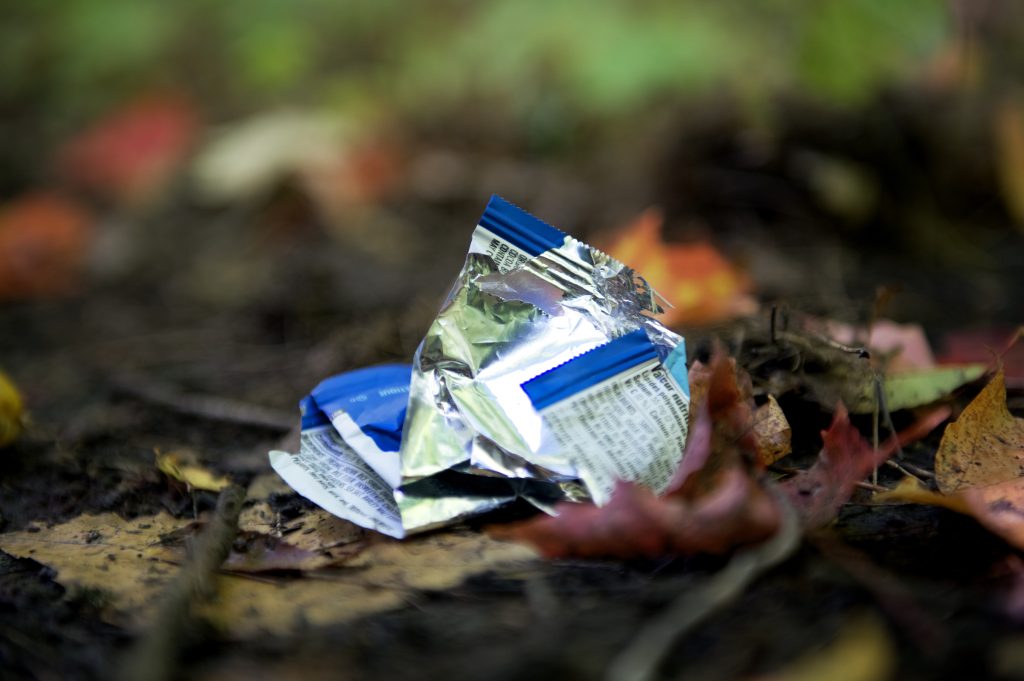
As I surveyed the scene, Deborah Cox’s iconic opening lyric ran through my head: “How did you get here [bread tag]? Nobody’s supposed to be here [granola bar wrapper].”
A certain level of pride comes with backcountry camping and the skills required to rough it. But whether you’re in the front country or backcountry, tent or RV camper, we can all use a refresher on how to reduce our impact on nature.
Here are my top tips for planning a zero-waste camping trip:
~
1. Preparation is everything
Packing for a zero-waste trip takes time, but the payoff is worth it.
Start by preparing snacks and meal kits at home to limit the garbage that comes from pre-made food.
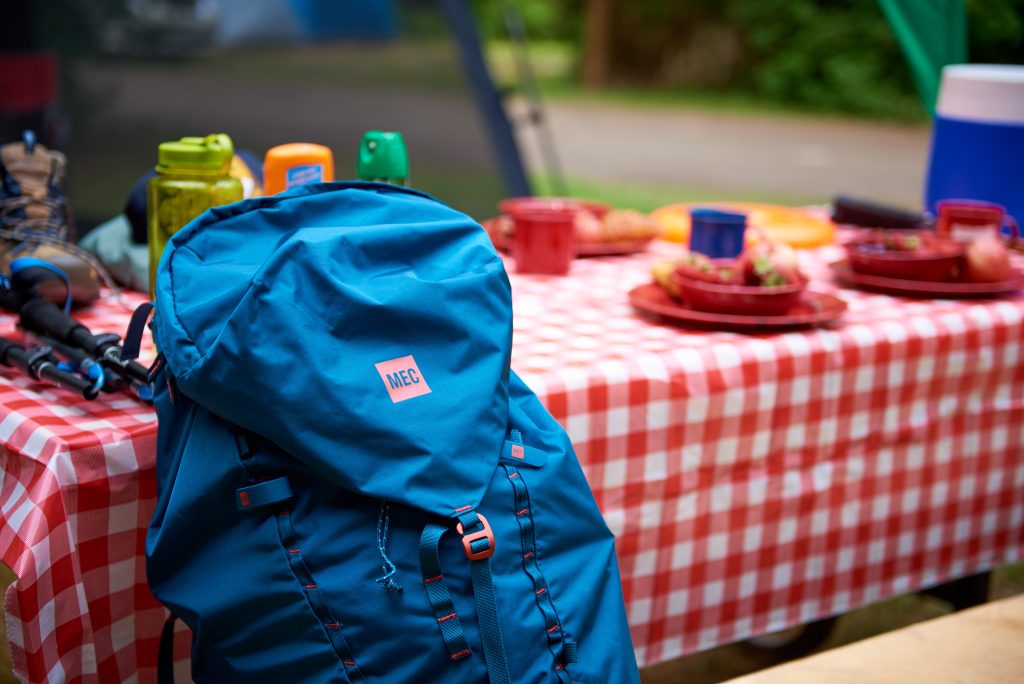
Make a meal plan based on group size, the number of days camping, and energy needs. High-activity days call for extra fuel, so plan meals and snacks accordingly to keep everyone energized.
Prep the foods that have the longest shelf life first—granola, trail mix, or snack bars can be made ahead of time. Save baking things like quick breads for the day before to ensure maximum freshness.
~
2. Choose your packaging wisely
I’m a big fan of reusable vacuum-sealable bags for travelling. They are lightweight, keep food fresh, and pack down once empty.
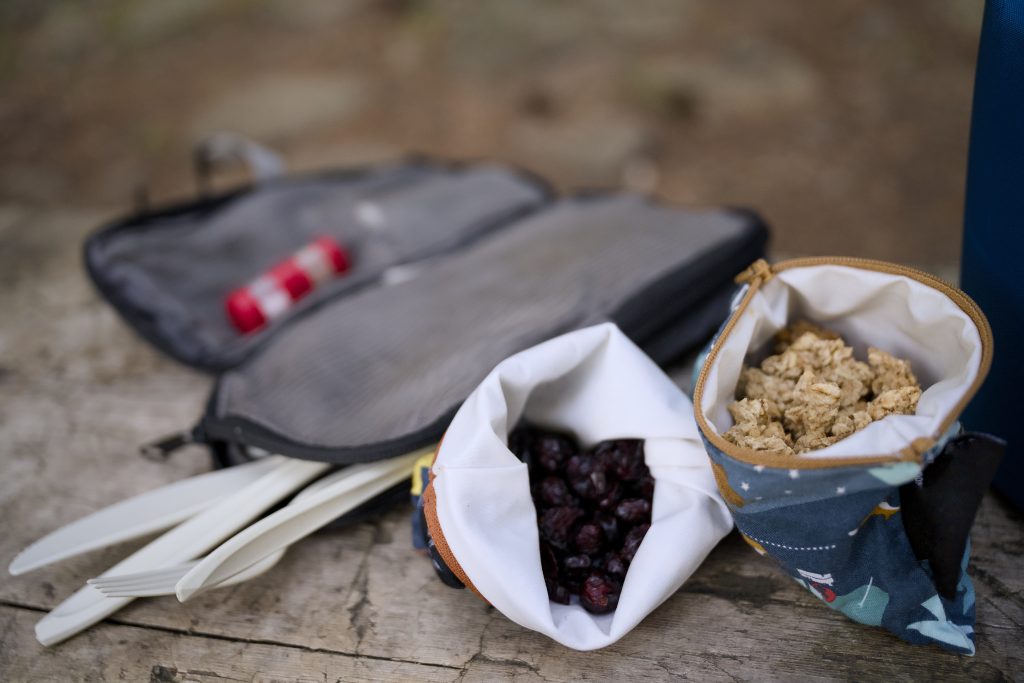
Other great options include collapsible silicone containers and reusable snack bags, which help cut down on waste. Before packing, check for packaging bans at parks, especially on cans and glass.
~
3. Don’t rely on compostable or biodegradable packaging
Compostable and biodegradable packaging has gained popularity, but don’t assume it will break down in nature.
Many compostable products need industrial composting facilities, while biodegradable packaging needs specific conditions that nature does not offer.
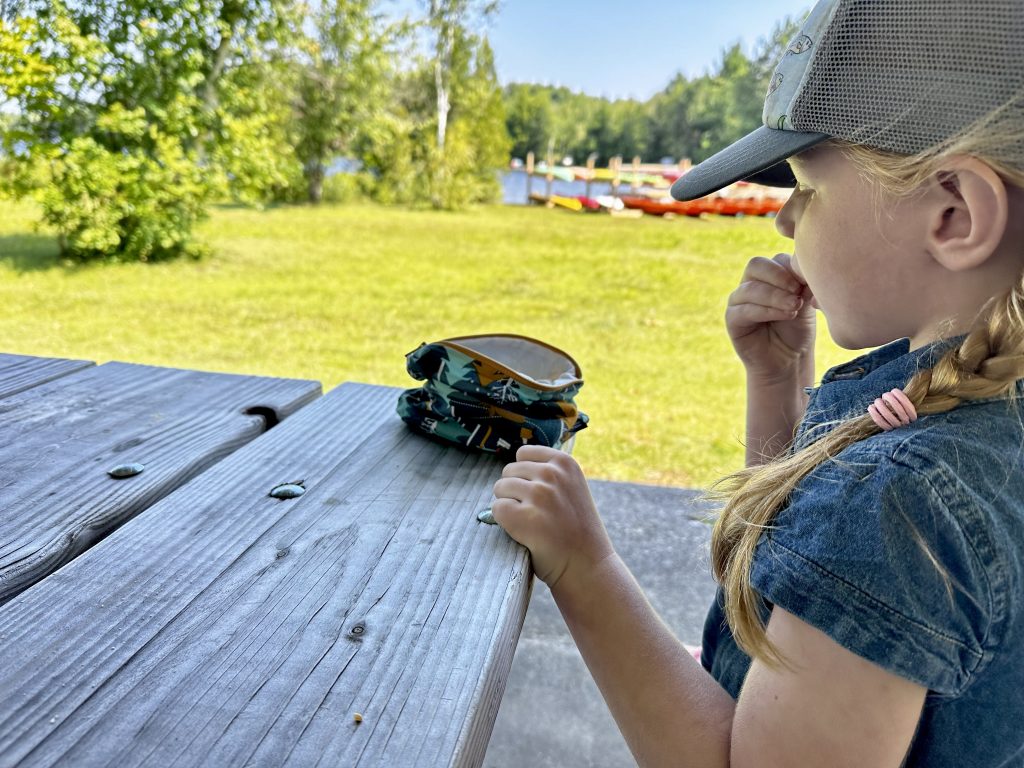
Instead, opt for reusable solutions that you can pack out!
~
4. Challenge yourself to shed unnecessary extras
Small swaps can make a big difference in reducing waste!
- Making muffins for your trip? Grease the tins instead of using liners to remove a pesky bit of waste
- Bringing electrolyte mix? Opt for tablets in a tube instead of individually wrapped servings
Get creative and challenge yourself to transport as little single use packaging as possible.
~
5. Decant what you can, plan for what you can’t
Pre-made food can be convenient, but ditch the original packaging at home.
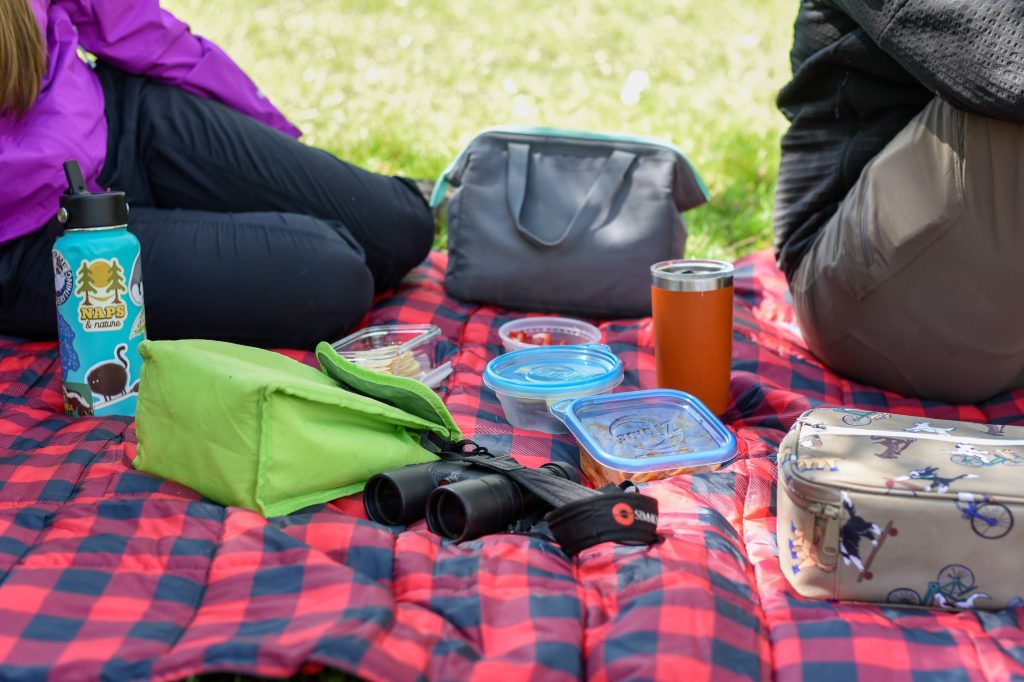
If there are certain meals and snacks that can’t be transferred to reusable containers, carry a container for the packaging edges and tearaway strips. These are notorious for blowing away in the wind!
Bring a sealable container for wrappers and garbage. I’m a big fan of using an old prescription bottle store protein bar wrappers, dental floss, and other small waste.
~
6. Think outside the bowl
Reducing waste goes beyond food! This can include swapping out conventional lights with battery packs for solar-charged alternatives or using a biodegradable soap bar instead of liquid soap.
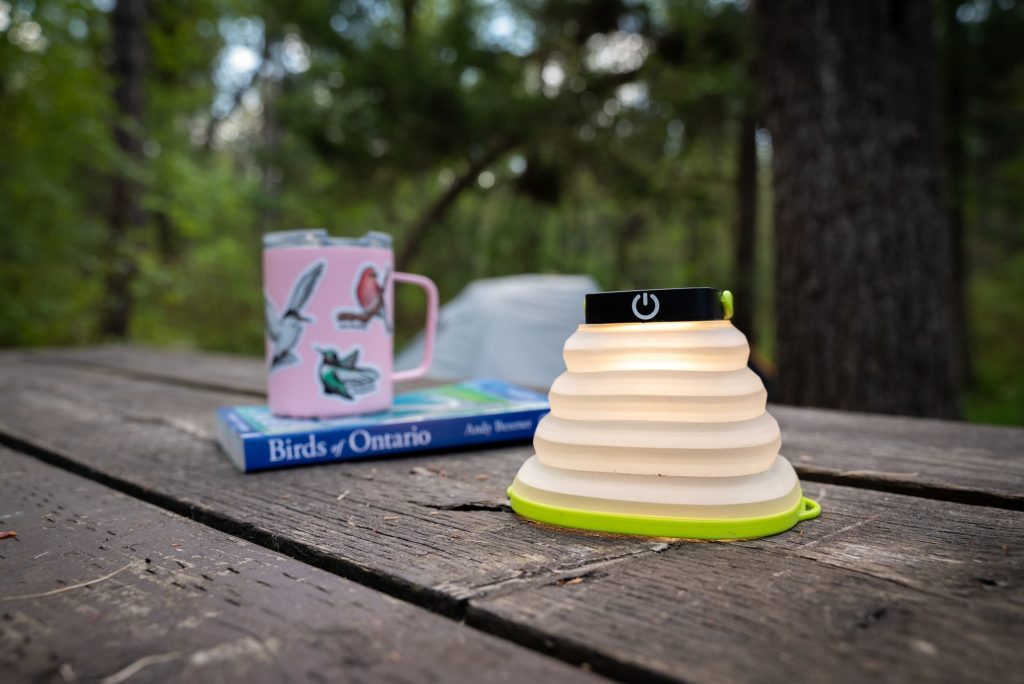
~
7. Don’t forget about your furry friends
Zero-waste also means packing out your dog’s poop. Have a plan for transporting your dog’s waste throughout your trip and when you are ready to head home.
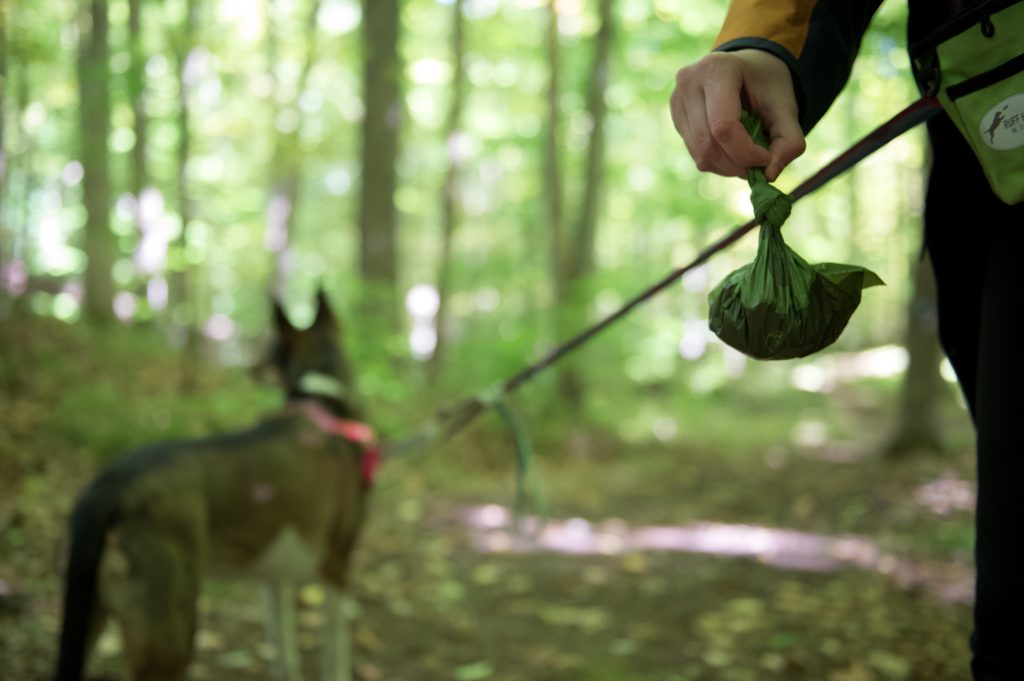
A good plan and sturdy container or resealable, odour-proof pet waste bag make this a much less stinky task.
~
8. Packing out can be tricky
Ensure everything you bring also leaves with you by packing smart!
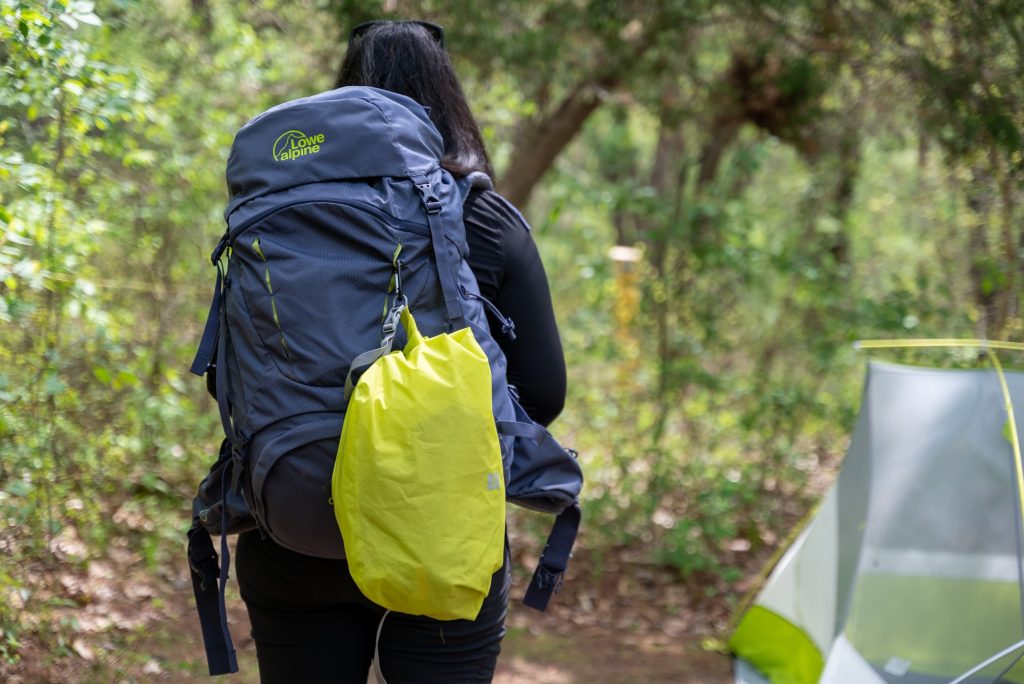
Carry an extra compression sack that attaches to the outside of your backpack for extra packing flexibility.
~
9. Leave it better than you found it
What’s better than zero-waste? Negative waste. Challenge yourself to find five pieces of litter for every day that you are at your site.

Always be careful when picking up litter and never handle anything that could harm you without proper protective equipment.
~
Small steps, big impact
Becoming a zero-waste pro, just like other backcountry skills, takes practice. With every trip, challenge yourself to reduce waste and help preserve the beautiful landscapes that inspire you to paddle, portage, and hike.
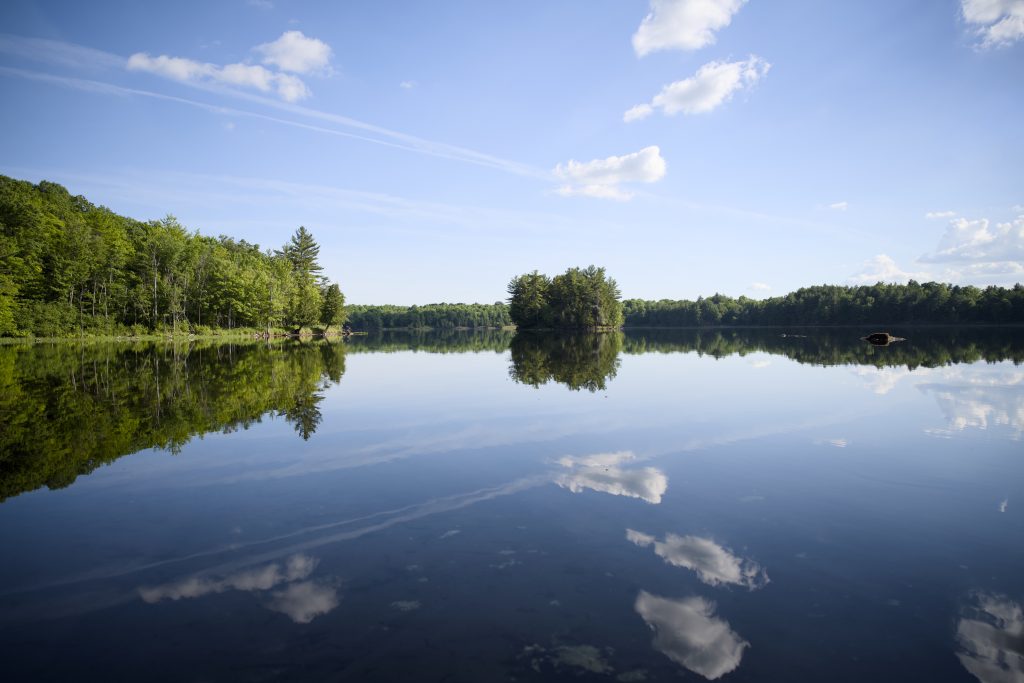
Together, we can keep Ontario’s natural spaces floss- and bread tie-free.


